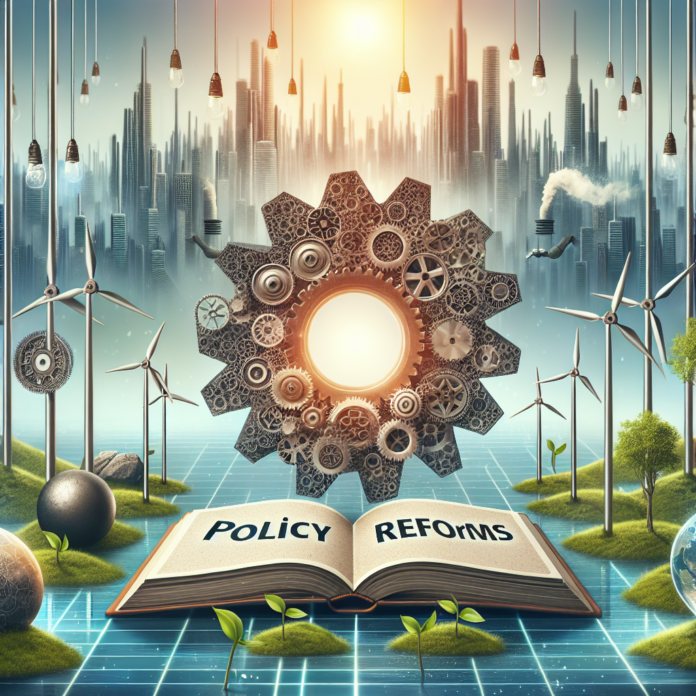Policy Changes Shaping Renewable Energy Future
Intelligent Living
How Policy Changes Are Shaping the Future of the Renewable Energy Sector
The renewable energy sector is experiencing rapid transformation, driven by relentless innovation and increasing global awareness of climate change. Central to this evolution are policy changes that governments around the world are implementing to foster growth in renewable energy sources such as wind, solar, and hydropower. These policy shifts are not only encouraging investment and technological advancement but also setting the stage for a more sustainable and resilient energy future.
Government Incentives and Subsidies
One of the most significant ways that policy changes are shaping the renewable energy sector is through the introduction of government incentives and subsidies. These financial aids are designed to reduce the initial cost burden for both companies and consumers who wish to adopt renewable energy technologies. Tax credits, grants, and low-interest loans are among the most common forms of support. For example, the U.S. federal government offers the Investment Tax Credit (ITC) for solar energy systems, which allows homeowners and businesses to deduct a significant percentage of their solar installation costs from their federal taxes.
Regulatory Frameworks
Regulatory frameworks are also being adapted to support the growth of renewable energy. Governments are establishing mandates and standards that require a certain percentage of energy to come from renewable sources. These Renewable Portfolio Standards (RPS) are compelling utility companies to integrate more clean energy into their grids. For instance, California has set a target of achieving 100% clean electricity by 2045, a move that has accelerated investments in renewable energy projects across the state.
International Agreements
International agreements and collaborations are playing a crucial role in driving policy changes. The Paris Agreement, adopted in 2015, aims to limit global warming to well below 2 degrees Celsius above pre-industrial levels. Signatory countries are required to set their own nationally determined contributions (NDCs) to reduce greenhouse gas emissions, which often include commitments to expand renewable energy capacity. This global framework provides a coordinated effort that bolsters national policies and encourages cross-border cooperation in renewable energy projects.
Technological Advancements
Policy changes are not happening in a vacuum; they are being supported by rapid technological advancements. Innovations in energy storage, grid integration, and energy efficiency are making renewable energy more viable and reliable. For example, improvements in battery storage technology are addressing the intermittent nature of solar and wind power, enabling these sources to provide a more stable and consistent energy supply. Governments are funding research and development initiatives to further accelerate these technological breakthroughs.
Economic and Job Growth
The shift towards renewable energy is also having positive economic impacts. The renewable energy sector is becoming a significant source of job creation. According to the International Renewable Energy Agency (IRENA), renewable energy employed 11.5 million people globally in 2019, and this number is expected to grow as the sector expands. Policies that promote renewable energy are not only addressing environmental concerns but are also contributing to economic development and job creation.
Challenges and Considerations
While the future of renewable energy looks promising, there are challenges that need to be addressed. Integrating renewable energy into existing power grids requires substantial infrastructure upgrades and investment. Moreover, policy changes must be designed to ensure a just transition, where the benefits of renewable energy are equitably distributed, and workers from traditional energy sectors are supported in transitioning to new roles.
Conclusion
Policy changes are undeniably shaping the future of the renewable energy sector. Through a combination of government incentives, regulatory frameworks, international agreements, technological advancements, and economic benefits, the shift towards renewable energy is gaining momentum. As countries continue to implement and refine these policies, the renewable energy sector is poised to play a pivotal role in achieving a sustainable and resilient energy future for the planet.
By staying informed and supportive of these policy changes, individuals and businesses alike can contribute to the global effort to combat climate change and promote a cleaner, greener future. The transition is underway, and with continued commitment, the possibilities for the renewable energy sector are boundless.
